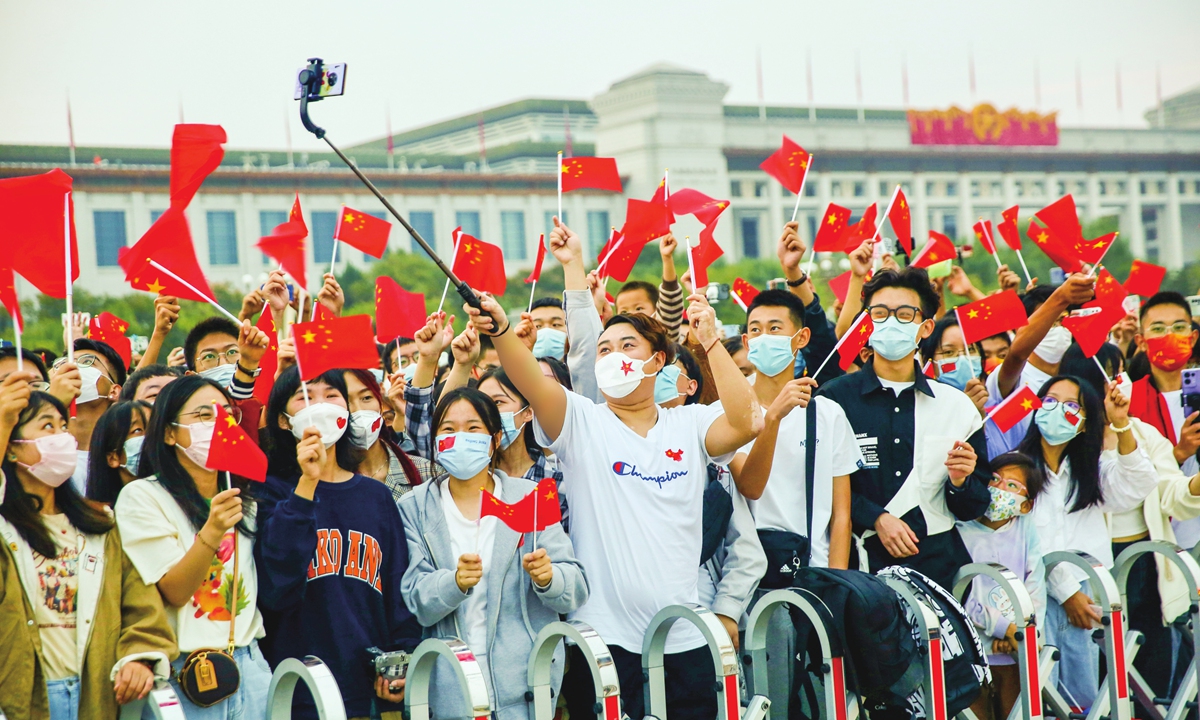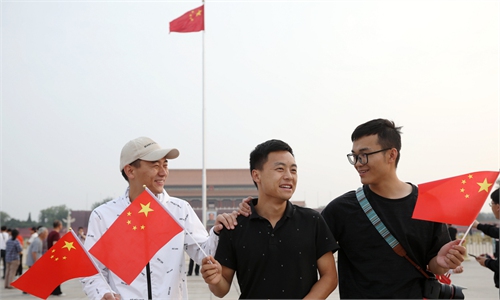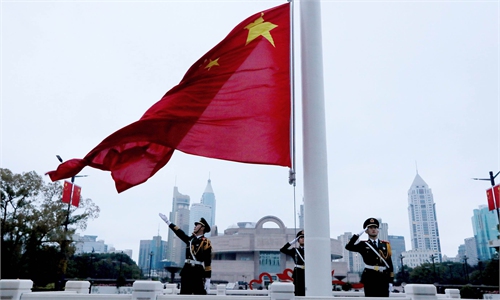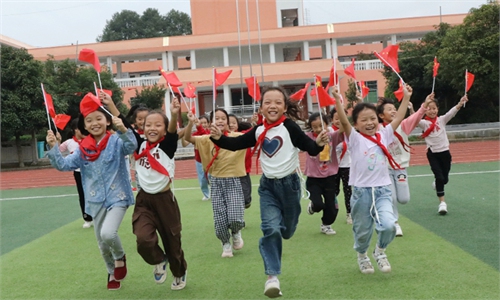Patriotic law comes into effect, serves to create sound atmosphere for patriotism
All levels, types of schools covered, including intl institutions

People take selfies with China's national flag while attending a flag-raising ceremony at Tiananmen Square on October 1, 2022.Photo:IC
Starting from January 1, a slew of new laws took effect in China with the Patriotic Education Law being one of the highlights. Society has high expectations for the law to contribute to patriotic education and further boost national cultural recognition.While the law emphasizes that patriotic education should target all levels of the society, it especially focuses on conducting education among schools, families and civil servants, company employees, rural residents and patriots from Hong Kong, Macao and Taiwan.
Additionally, the law explicitly states that on the National Day of the People's Republic of China, various forms of celebration activities should be held to carry out patriotic education.
In schools, the law requires integrating patriotism education throughout the entire process of school education including the class lectures of ideological and political theory. Additionally, patriotic education should be incorporated into various subjects and textbooks.
However, a Guardian article about the possibility of the law being enforced attributed the drop of certain British private schools out of China to the inclusion of patriotic and national security subjects into curriculums. It also demonized the law saying it is "deterring Western teachers from working in the country."
A mother of a student at a private school affiliated with the Dulwich College International in Shanghai told the Global Times that courses are expected to adjust a bit to fit the requirements of the new law and patriotic content should be seen in Chinese and ideological and morality courses.
The parent also noted that local educational authorities will come by to inspect the implementation of patriotic education at the school now and then.
Private international schools are also one of the "levels and types of schools" that should have patriotic education included into the entire course of school education according to the law. No matter their nature, all schools should comply with the new law, Xiong Wenzhao, a professor from the Law School of Tianjin University, told the Global Times. "This is the essence of any sovereign state's educational sovereignty."
Xiong said that following the implementation of the law, it will serve to create a sound atmosphere for fostering a sense of patriotism.
The law not only regulates education activities at schools, but also prohibits illegal acts such as insulting heroes and martyrs, jointly providing a solid legal guarantee for the legitimate rights and interests of these heroes and martyrs and helping guide all sectors of society to better respect history and protect these figures, Xiong noted.
Months ahead of the law's implementation, the Global Times noted that various schools had started to explore how to better integrate patriotic education into their daily teaching. The Chongqing Financial School, for example, began to organize students to engage in regular patriotic activities at museums and carry out scenario-based and experiential practice activities.
Apart from the Patriotic Education Law, the first day of the new year witnessed the implementation of the country's first comprehensive regulations on the online protection of minors. They prohibit any organization or individual from cyberbullying minors.
Beijing, Northeast China's Jilin Province and Northwest China's Ningxia Hui Autonomous Region recently have made moves to implement the regulations, guiding younger generations to use the internet in a safe way.
The regulations clarify the responsibilities of government departments in charge of internet and information technology, press and publication, public security, and market regulation, among other areas, in protecting minors in cyberspace.



